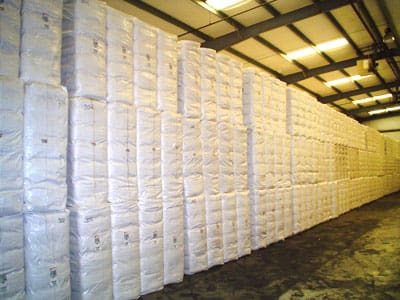RECENT textile and apparel trade data from the United States Department of Agriculture (USDA) reveal both the global impact of COVID-19 and signs of the sector’s recovery.
Consumer demand was impacted on multiple fronts – changing behaviour, lockdown restrictions, and rapid unemployment which reduced discretionary income.
Global apparel imports dropped dramatically in April and May, with US imports for May down 55 per cent from the previous year.
European Union and United Kingdom imports were down over 40pc, while Japan fell 30pc in the same period.
Export slump
In its latest cotton report, the USDA said the decline in textile and garment exports was felt in all major markets but not equally.
 Exports from Bangladesh and India fell by 85pc and 90pc respectively, while shipments from Pakistan, Turkey, and the European Union witnessed 60pc declines.
Exports from Bangladesh and India fell by 85pc and 90pc respectively, while shipments from Pakistan, Turkey, and the European Union witnessed 60pc declines.
Vietnam textile and garment exports fell roughly 30pc.
In previous economic slowdowns, such as the 2008 Great Recession, a sudden decline in consumer demand was not initially matched by slowdowns in cotton-related processing sectors (i.e. spinning, knitting, weaving, and cut-and-sew).
This led to massive buildups in inventory throughout the supply chain.
As consumer demand recovered, excess inventory was slowly liquidated, delaying any significant recovery.
However, the impacts of COVID-19 hit both demand and supply at the same time.
Lockdown restrictions slowed consumer spending while also halting cotton-related processing.
Impact on spinning
Spinning mills’ operating rates in India, Pakistan, and the US fell over 90pc, while declines were slightly lower in China.
Similar to the export data, Vietnam’s operating rate declined by only 30pc.
Recovery in the spinning sector has also been uneven – COVID-19 first impacted China and coincided with the Chinese New Year holiday.
China’s recovery is faster than in many other countries, with operating rates returning to near pre-COVID-19 levels in three to four months, with other countries’ rates still below pre-COVID-19 levels after six months.
Cotton stocks expand
The USDA said that while the rapid shutdown of spinning mills somewhat limited the buildup in yarn and fabric inventories, cotton stocks expanded rapidly.
When COVID-19 emerged, most of the 2019/20 crop was harvested and the current year’s planting had begun.
Expectations for 2020/21 world production have declined only slightly since February; however, global consumption is a different story.
Comparing November’s global consumption to the February USDA Outlook, 2019/20 use is 17 million bales lower (14pc) and the 2020/21 forecast is 7 million bales lower (6pc).
As a result, 2020/21 global cotton ending stocks are now forecast 22 million bales higher (22pc) than at the Outlook Forum.
The speed of recovery in consumer demand is uncertain. Recent apparel imports include deferred demand as consumers made purchases that were initially delayed.
Moreover, some demand that was lost, such as school uniforms, 2020 summer and vacation clothing, hotel use of cotton bed sheets and towels, and other seasonal clothing items, may never be recovered.
The long-term impacts of remote work on workplace and school attire purchases remain unknown.
Overview 2020/21
The USDA said the November forecast shows slightly higher trade, beginning stocks, and ending stocks.
Use and production are marginally lower. Sharply lower production in Pakistan and Turkmenistan more than offset increases in Australia, China, and Uzbekistan.
Consumption is lowered in Pakistan. Global trade is slightly higher on higher imports for Pakistan. The US forecast shows marginally higher production.
Yield is still projected at a record. The US season-average farm price is raised 3 cents to 64 cents per pound.
Source: USDA

HAVE YOUR SAY